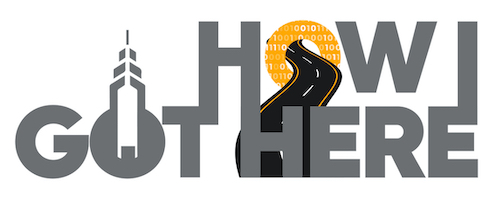
This is How I Got Here, a series where we chart the career journeys of technologists. Want to tell your story? Get in touch.
Kristen Brown thrives on making things run smoothly.
She realized, after earning a degree as an occupational therapy assistant from Delaware Technical and Community College, that the work she loves most is administrative.
The 30-year-old operations manager for the nonprofit American Occupational Therapy Association didn’t set out to work on the tech and admin side of the industry.
After starting her career working directly with occupational therapy patients, she soon found her potential in administration when she started working as an assistant fieldwork coordinator with Wesley College and an outpatient rehab facility.

Brown went on to get her bachelor’s degree and master’s of business administration at Wilmington University, with a stint as an adjunct professor at Delaware State University along the way.
That’s when Brown realized that pivoting from therapy to admin meant she was moving into more tech-focused territory, where getting things done efficiently relied on figuring out the best ways to leverage technology.
Brown, who lives in Smyrna, has been working remotely for the Bethesda, Maryland organization since she started. It’s been a convenient setup for the mother of two young children, though remote work resources in Kent and Sussex counties remain sparse.
In this edition of Technical.ly’s How I Got Here series, Brown discusses how she leans into the tech side of her role, work-life balance and her small-town remote setup.
This Q&A has been edited for length and clarity.
When did you realize you wanted to work in technology?
While I was doing fieldwork coordination with Wesley College, there was this fun evolution. I realized technology will make or break you.
If good technology was in place, then the fieldwork coordination process was easy. It was a mess when I started, and we streamlined a lot of our processes to leverage technology and make the coordination process easier.
When I started looking for something more business-oriented and also more tech-oriented. An opportunity came up, and that’s where I work today.
How would you describe the operations manager position?
It’s actually a new position. I got promoted, and I would say it’s still evolving into exact job duties, but a lot of it is supporting our council and our volunteers and operationalizing everything that they do.
Because right now, they have procedures in place, and they have policies that they follow, but we need to memorialize all of that for them so that they can refer to reference sheets in a clean way. Right now, they have access to resources, but it’s scattered.
I’m just really trying to streamline everything that the volunteers do.
You work remotely in Smyrna, a small town near Dover. Was remote work an adjustment?
I started working remotely on a part-time basis during COVID when I was with Wesley College. We did virtual instruction. I started working from home full-time two and a half years ago, and I love it.
I still feel really connected. I don’t feel isolated.
Kristen Brown, operations manager at American Occupational Therapy Association
I have two toddlers who consume a lot of my time, so the less time that I have to commute the better. It just makes the work-life balance so much better.
Being in Smyrna, there are not really any places to work, like cafes. We do have Starbucks in the area, and a really nice library. I go on rare occasions, especially in the middle of the winter, when you feel that seasonal depression kicks in and you need a change of space.
But I’m also on a team now where we communicate a lot by Microsoft Teams, so I still feel really connected. I don’t feel isolated.
What does a typical day look like?
On a typical day, we try to have a slow morning. I don’t like rushing. That’s the best part about working from home.
I get my kids ready for school. I take my son to his daycare, and my daughter to her preschool. That’s usually around 8:30, and I’m usually signed on around 9:00.
I start my day by checking my email, then we have procedures that we have to run through, and then I typically shift to project-style work. Then, thrown into the mix are meetings and calls. If I have to help the individual that I supervise, I will jump on a call.
At one o’clock I pick my daughter up from preschool, and we usually grab a coffee or groceries. Then, I’m back working until 4:30.
Between meetings, I might be vacuuming my carpet or letting my dog out. If my husband hasn’t picked up the kids, I’ll go pick them up and we have dinner.
What advice would you give to someone — especially someone in a small town or rural area — who is interested in getting into tech as a remote worker?
The gentleman that I supervised was new to full-time remote work, and I told him to make sure that he gets some kind of activity, like a gym membership, and make sure to take breaks.
Go out to the gym, go for a walk, whatever that activity is, participate in it. Because it’s very easy to get stuck in your chair. I think we all feel an obligation to be visible on our computers 24/7, but it’s totally okay to step away and focus on your mental health.







